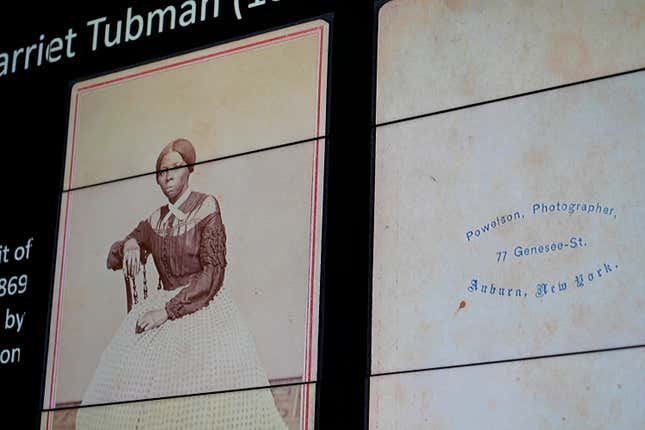
A newly discovered photo of Harriet Tubman is now on display for the first time at the Smithsonian’s National Museum of African American History and Culture in Washington, D.C. The portrait offers a rare glimpse of Tubman, casually posed in a chair wearing what is described as an elegant dress that features an elaborate bodice and full skirt.
Lonnie Bunch III, founding director of NMAAHC and newly appointed secretary of the Smithsonian Institute told the New York Times, “What this photograph does is humanize Harriet Tubman. The photograph shows her stylish and in the vibrancy of her youth.”
As the Times notes, most photos of Tubman—who was born enslaved and named Araminta Ross in 1820s Dorchester County, Md.—feature her with a stern or pensive look on her face. Photos from later in her life show her looking frail.
The photo is believed to have been taken in the 1860s and was acquired by the museum two years ago as part of a leather-bound album that was owned by an Arlington, Va., Quaker schoolteacher named Emily Howland, according to the Times.
The album contained 49 photos in total, including one of John Willis Menard, the first black man elected to the House of Representatives.
After escaping to Philadelphia in 1849, Tubman became known as “the Moses of her people,” returning to the South many times to help other enslaved black people to escape to freedom in northern states.
A 2016 proposal by then-Treasury Secretary Jacob J. Lew to have Tubman replace Andrew Jackson on the $20 bill has since stalled under the Trump administration.
Bunch told the Times that when the photo album came up for auction, he and his colleagues joined forces with the Library of Congress to buy it.
“We thought we knew everything we were going to know about Harriet Tubman,” Bunch said. “This inspires us to keep looking.”

